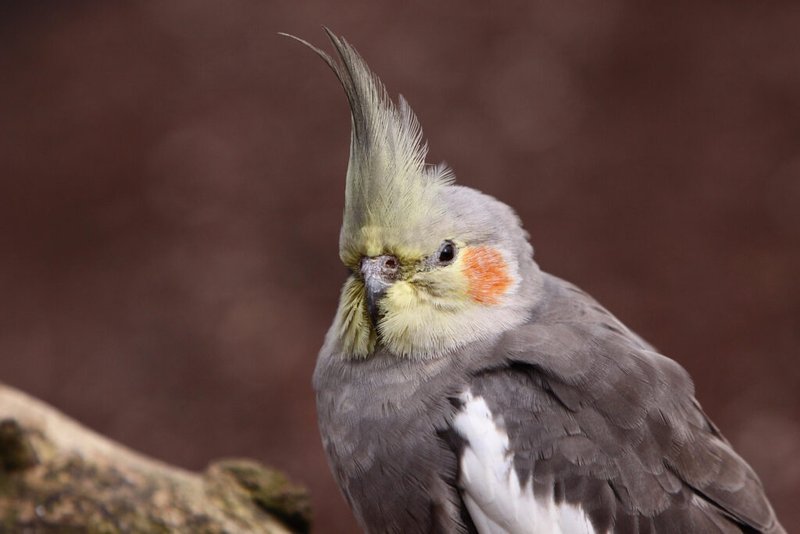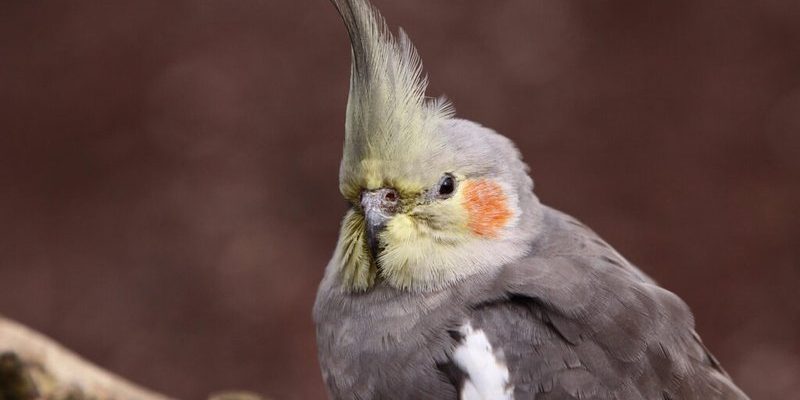
The average lifespan of a cockatiel is around 10 to 15 years, but many factors can influence this range. It’s a bit like baking a cake; the right ingredients and careful attention can make all the difference! In the case of cockatiels, a mix of nutrition, living environment, and genetics plays a significant role. In this guide, we’ll explore these factors in detail and give you a heads-up on how to spot signs of aging in your feathery friend.
Understanding Cockatiel Lifespan
When we talk about cockatiel lifespan, it’s essential to remember that several variables come into play. A key factor is whether your cockatiel is hand-raised or wild-caught. Hand-raised birds tend to have a more favorable lifespan as they are often better cared for, receive more attention, and are socialized from a young age.
Another crucial element is the overall health of your cockatiel. Birds generally show signs of illness differently than pets like cats and dogs. Catching health issues early can contribute to a longer life. Regular check-ups with an avian vet can help you monitor your pet’s well-being, ensuring they remain healthy and vibrant throughout their lives.
Environmental factors also significantly impact lifespan. A stable, safe home with proper temperature, plenty of social interaction, and mental stimulation keeps your cockatiel thriving. A joyful bird will often live longer than one stuck in a stressful or lonely environment.
Diet and Nutrition
It’s no surprise that good nutrition is a cornerstone of a long, happy life for your cockatiel. A balanced diet should consist of a mix of seeds, pellets, fresh fruits, and veggies. Think of it like providing your bird with a colorful rainbow of food options!
You might be wondering: what should I include? Here’s a quick list to get you started:
- High-quality pellets
- Fresh vegetables like kale, carrots, and bell peppers
- Fruits like apples, bananas, and berries (in moderation!)
- Seeds as an occasional treat
Overfeeding seeds can lead to obesity and related illnesses, which sadly can shorten your cockatiel’s lifespan. It’s always best to consult with an avian vet to fine-tune the diet based on your bird’s needs.
The Importance of Socialization
Cockatiels are known for their social nature. They thrive on interaction—both with their human companions and other birds. Imagine living in a quiet, empty house; it’d be hard to feel happy or healthy, right? That’s how your cockatiel might feel without companionship.
These birds are highly social creatures and enjoy talking, singing, and playing. So, providing them with ample social interaction is important. If you’re not home much, consider getting a second cockatiel or providing lots of toys to keep your bird company.
Spending time with your bird daily can also lead to a stronger bond, making your cockatiel more relaxed and content, which aids in overall longevity.
Signs of Aging in Cockatiels
As with all pets, aging is a natural process for cockatiels, and it’s important to recognize signs that your bird may be reaching its golden years. One common indicator is a change in behavior. Older cockatiels might become less active, preferring to perch quietly rather than flitting about as they once did.
You might also notice physical changes, such as:
– Feather condition: Older birds may have more ragged feathers or show signs of feather loss.
– Vision issues: If your cockatiel starts to bump into things or seems less responsive to visual cues, it could be a sign of aging.
– Changes in vocalization: A decline in chirping or singing could indicate health issues that often accompany aging.
Common Health Issues in Older Cockatiels
As cockatiels age, they can become susceptible to specific health problems. Understanding these issues can help you care better for your aging bird. Some common concerns include:
– Kidney disease: Older cockatiels may face kidney issues, which can lead to lethargy, changes in appetite, and water consumption.
– Liver disease: This can manifest as feather discoloration, abnormal droppings, or even swelling.
– Obesity: With age may come a slowdown in metabolism, making it vital to monitor weight and adjust their diet accordingly.
Regular vet visits are key for older cockatiels, as early detection can lead to more effective treatment and potentially a longer life.
Creating a Comfortable Environment
The environment you provide for your cockatiel can significantly affect its wellbeing, especially as it ages. Consider these tips to create a comfortable and safe habitat:
– Proper cage size: Ensure your cockatiel has enough space to move around freely. A larger cage allows for climbing and stretching without feeling cramped.
– Temperature control: Keep the room temperature stable and avoid drafts. Cockatiels are sensitive to extreme temperatures.
– Safe perches: Offer a variety of perches made from different materials. This not only keeps their feet healthy but also encourages activity.
Making your cockatiel’s home cozy and secure can help it age gracefully, improving both its quality of life and lifespan.
Monitoring and Caring for Aging Cockatiels
Caring for an aging cockatiel requires a bit of extra attention, but it can be incredibly rewarding. Here are some steps to keep in mind:
1. Frequent health check-ups: As we discussed, regular vet visits will help catch potential issues early.
2. Watch their diet: Adjust their food as needed. Older birds might benefit from softer foods that are easier to eat.
3. Maintain mental stimulation: Enrich their environment with toys, puzzles, and interaction. Keeping their minds sharp is just as important as their physical health.
Staying engaged with your cockatiel and monitoring its health closely will help you provide the best care possible.
In conclusion, understanding how long cockatiels live and the factors affecting their lifespan empowers you to make informed decisions as a bird owner. By providing a nutritious diet, social interaction, and a comfortable environment, you can significantly boost your cockatiel’s chances of living a long, happy life. Remember, every moment spent with your feathered friend is a chance to create lasting memories together. Enjoy the journey!

